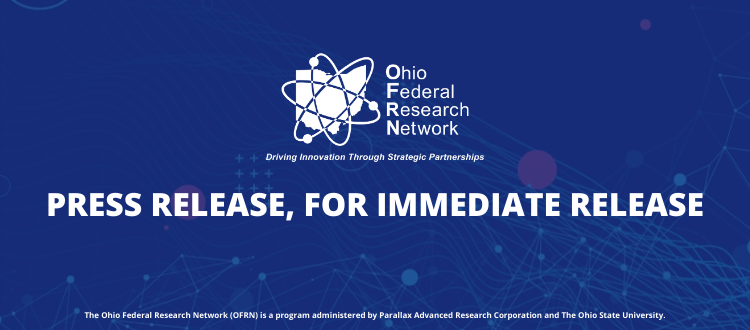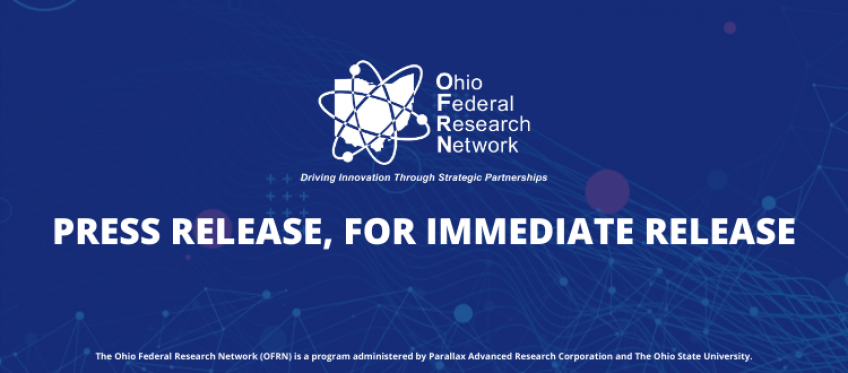Whether it’s for a cell phone, laptop, or camera, people always complain about their
batteries. The problems remain the same – the amount of time needed between recharge as well as the
overall life of the battery itself.
Dr. Yu Zhu, an assistant professor of polymer science from the University of Akron, is leading a project to
fix those problems and build a better battery.
Funded in part by a unique statewide initiative – the Ohio Federal Research Network (OFRN) – Dr. Zhu’s
team is working to develop advanced materials that will improve a battery’s cyclability – the number of
times a battery can be recharged–as well as increase battery storage density – the length of time a
battery can go before needing to be charged. Expanding the time between charges also improves a
battery’s overall life.
Researchers have tried to find new binding materials in the past to meet these challenges. Previously,
silicone based electrodes had been shown to have a larger capacity, but because the electrodes would
degrade rapidly through repeated charging it made them impractical for use in consumer goods. This
project, developed over the past four years through funding from the Department of Energy and a
$649,000 grant from the OFRN, has developed a new polymer binding material coupled with a new
process that mitigates the issues related to the continuous expansion and contraction of silicone
electrode during the charging and discharging cycles need to reliably power electric technology.
This research is has garnered a great deal of excitement in government circles– NASA and AFRL both see
application for Unmanned Air Vehicles and even, eventually, for Personal Air Vehicles. These
applications are only one avenue of interest—any application powered through electric batteries,
whether phones, cars, or computers, stands to benefit greatly from the technology. The project is now
in the prototype phase and with additional testing may be able to enter the market within a couple
years.
“Here in northeast Ohio we do a great deal of work with traditional automotive components. But with
this development and a better electric vehicle power source, we can expand our manufacturing
portfolio which is really good for our region and for Ohio.” Dr. Yu Zhu, Assistant Professor in the
Department of Polymer Science, University of Akron.
Dr. Eric J. Amis, Dean of the College of Polymer Science and Polymer Engineering, University of Akron, added
“This type of aligned research network has been tried in other states, however, our approach in Ohio is
unique and it’s working well at the University of Akron and throughout the state. Now with the
continued leadership and support from Ohio legislature we are able to continue to leverage our OFRN
investment and achieve even greater results for Ohio.
The Ohio Federal Research Network (OFRN) springs from the state’s Federal Military Jobs Commission
initiative, approved by Ohio’s legislature in the summer of 2015. OFRN brings university research
capabilities to solve federal technology needs while also enabling commercialization through industry
partnership. To date, these research efforts have included 11 universities throughout the state and 52
industry partners.
“The Ohio Federal Research Network has been an exceptional investment for Ohio and is already having
a tremendous statewide impact. To date, the OFRN team has received nearly $45 million in new
research awards, with $200 million more in the pipeline,” said Ohio State Senator Bill Beagle.
OFRN’s unique framework encourages collaboration and so while this project is led by Dr. Yu Zhu from
the University of Akron, it includes researchers from University of Toledo and Ohio State University and
is supported through the Energy Storage and Integration Center of Excellence which in turn is led by
Case Western Reserve University. In keeping with the OFRN model, these projects work directly with
industry partners such as pH Matter and Akron Polymer Systems. This particular project has attracted
interest from venture capitalists and enabled a new startup—Akron Polyenergy—to spin out from The
University of Akron.
Dennis Andersh, the executive agent for the OFRN and chief executive of the Wright State Applied
Research Corporation (WSARC) stated “This is just one example of the quality of the projects coming out
of OFRN collaborations. OFRN has created the environment for the partners to engage together with
the Department of Energy, NASA and private business. This project has already resulted in a new
company, which is exactly what OFRN is all about.”
For more information call OFRN Program Coordinator Becky Mescher at (937) 705-1047.


